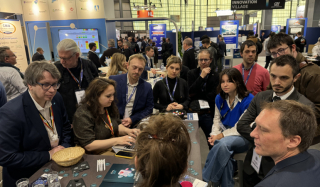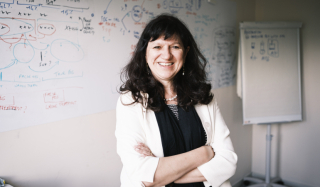Kaneka Eurogentec has laid the first brick for its new facilities. A €40 million investment and the chance to create 40 new jobs in Wallonia.
Active in the development and manufacturing of biomolecules, the Liege-based company is confirming the strong growth of its activities and doubling the total surface area of its production zone. With the construction of this new building next to the current structure, the entire production unit will be increased to about 10,000 m2 and will enable the large-scale production of pharmaceutical products.
A world record
The aim of this investment is to create a unique platform for manufacturing biological products designed for clinical studies and retailing. The new facility combined with the company's know-how will help to meet customers' constantly growing needs.
"We currently hold the world record for the largest quantity of plasmids every produced in one batch", declared Lieven Janssens, the company's Executive Vice-Chairman. The company also confirms that the site's extension will allow it to "triple turnover".
Eurogentec, created as a spin-off of the University of Liège (ULiège), was incorporated into the Japanese company Kaneka in 2010 and was renamed Kaneka Eurogentec. In 2016, the company won the biannual competition, the Wallonia Export Awards.
This award, presented by the Wallonia Export-Investment Agency (AWEX), rewards " companies that have contributed to the promotion and quality of Walloon know-how overseas thanks to an increase in their volume of exports or the conquest of difficult markets". Last year, Pascale Delcomminette (CEO of AWEX), who has been greatly involved in the Kaneka affair, declared himself to be delighted with this new investment.
Creation of 40 new jobs
The company's strong growth has already allowed it to hire about 50 additional staff members in recent years. The new extension will enable the recruitment of no fewer than 40 full-time technical and scientific employees.
The new production unit will also enable the production of new vaccines and drugs designed for final phase clinical testing. Up until now, the development of biopharmaceutical products was restricted to stages 1 and 2 of clinical testing.






